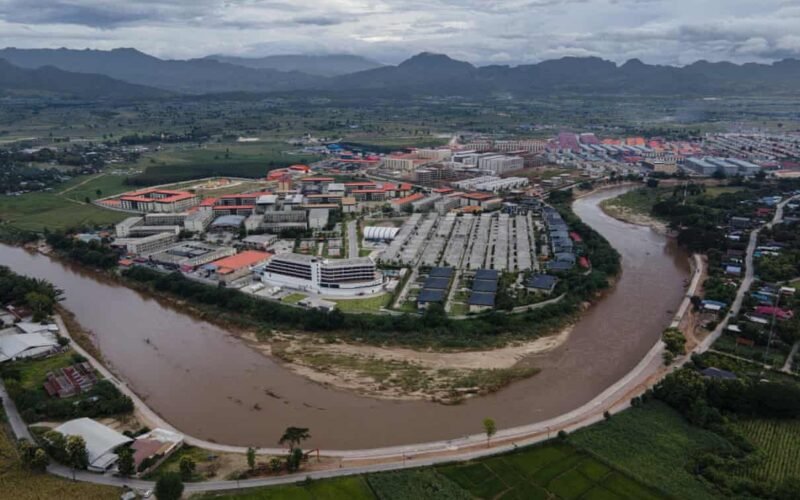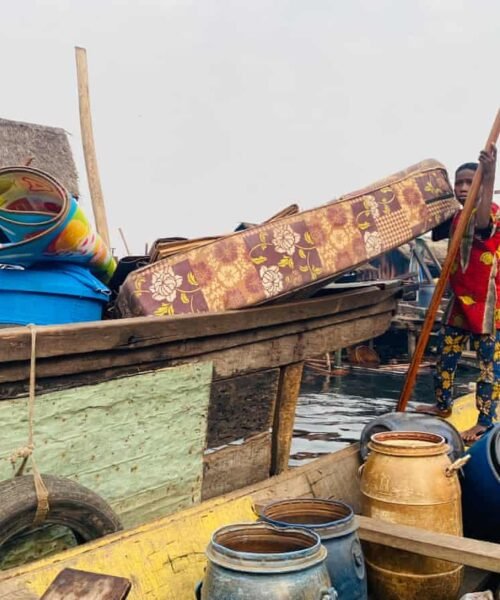*Promises Of Legitimate Jobs Turn Hellish
*Passports, Others Instantly Confiscated
*Beatings, Starvation, Sex Abuse Rife
Note: People&Politics is publishing this piece as a social responsibility initiative to enable potential Nigerian immigrants make proper, informed choices.
Within hours of landing in Bangkok from Nairobi, Kenya last December to start a job as a customer service agent, Duncan Okindo knew something was wrong.
The 26-year-old had sold his cattle, borrowed money from friends and used his savings to pay a recruitment agency 200,000 Kenyan shillings (£1,150; about N2.3m).
“I felt it would be good to go outside [the country] and look for money to take care of my family,” says Okindo. “I’d tried hard to get a job in Kenya, but life here had pushed me to the wall.”
But when a van picked up Okindo and six other Kenyans at the airport, the driver collected their passports and told Thai officials they were tourists. After hours of driving, they were herded, tired and bemused, into a boat for a river crossing.
The men were being taken to neighbouring Myanmar, where Okindo found himself inside a walled compound guarded by rebel militia.
He was set to work every day for the next three months, forced to send thousands of messages from fake social-media profiles, posing as a rich American investor to swindle US real estate agents into cryptocurrency scams.
When he failed to reach daily targets, he was beaten, locked inside a freezing-cold room and deprived of food for up to two days.
He prayed he would avoid the electric shocks and sexual torture others endured at the hands of a Chinese criminal gang that ran the centre.
“It was hell on Earth,” he says. “I broke completely, to the point of losing hope entirely.”
Okindo, who was finally released from Myanmar’s KK Park compound in April, 2025, is among a fast-growing population of Kenyans, Ugandans and Ethiopians trafficked to south-east Asia as criminal syndicates increasingly look to expand their ranks with east African labour.
When Susan Wafula (not real names,for security reasons) was rescued from a Myanmar romance scam centre (where fraudsters trick victims into thinking they are in love with them) in 2022, she moved between four Thai detention centres for a month as she went through legal processes to establish that she had been trafficked and eventually get a ticket home.
“I was in a cell just so I could be determined to be a trafficking victim and get my freedom,” says Wafula, 32. “If I hadn’t, I’d have rotted away there by now.”
Neither Uganda nor Ethiopia have embassies in Thailand, limiting their ability to locate victims in Myanmar, which is engulfed in civil war.
Earlier this year, dozens of Ugandans and Ethiopians were stranded at the Myanmar-Thailand border as repatriation efforts stalled.
Scam syndicates have exploited the gaps in east Africa’s diplomatic representation to discourage victims from seeking help, says Jason Tower, of the Global Initiative against Transnational Organized Crime, claiming “their own governments don’t care about them” to make them give up hope.
“At the end of the day, that’s what scam syndicates seek to do: turn these people into money-making machines who are able to function as high-capacity scammers,” Tower says.
But even as east African countries repatriate their citizens, recruitment agencies continue to advertise sham jobs. Okindo and Wafula have shown the Guardian UK messages from Kenyans who are still considering moving to south-east Asia.
In May, Okindo, who has a Diploma in Mass Communication, sued the recruitment agency and the staff that sent him to Myanmar, accusing them of abetting in his subjection to slavery and human trafficking. A Nairobi court has issued a temporary order preventing them recruiting for work abroad.
Since his return, Okindo has spoken about his experience on TV, TikTok and other social media platforms. He connects stranded victims with lawyers, aid organisations and ambassadors for repatriation.
The goal, he says, is to build awareness of predatory agencies and fake jobs, and to encourage victims to pursue justice.
“I’ve enlightened people a lot,” he says. “Sometimes I fear talking about it, but I say whatever happens, let me save a few people instead of being quiet.”
Criminal syndicates have been shifting towards scamming victims in the US and Europe after Chinese efforts to prevent its citizens being targeted, experts told the Guardian UK.
That has led some trafficking networks to seek recruits with English-language and tech skills – including east Africans, thousands of whom are now estimated to be trapped inside south-east Asian compounds, says Benedikt Hofmann, the UN Office on Drugs and Crime (UNODC)’s representative for south-east Asia and the Pacific.
As public awareness grows in each country, it also becomes more difficult to recruit there.
“It’s much more difficult these days to recruit huge numbers of people from, let’s say, India,” says Hofmann. “That’s also why we’re seeing this increase in people from Africa.”
PHOTO CAPTION: KK Park is a rapidly expanding scam centre in Myawaddy, on Myanmar’s border with Thailand.



















